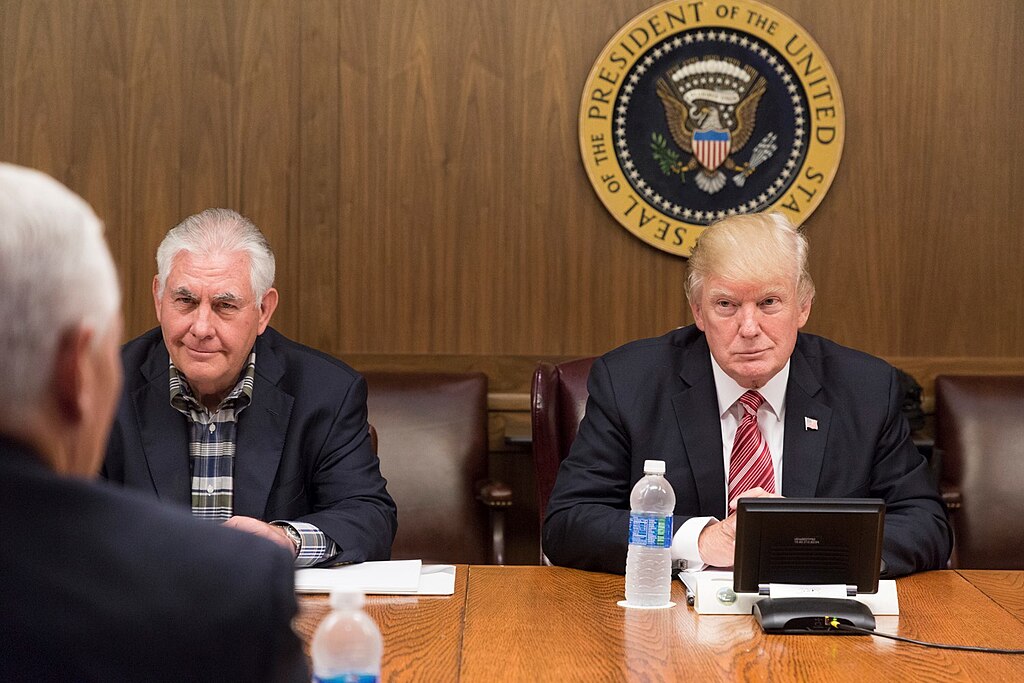President-elect Donald Trump has unveiled a sweeping proposal aimed at enhancing safety standards in amusement parks across the United States. With an increasing number of high-profile incidents at theme parks in recent years, Trump’s administration is pledging to implement stricter federal oversight while encouraging private sector innovation. This move, they claim, will balance public safety with the operational freedom of amusement park operators.
Central to Trump’s plan is the establishment of a national safety task force under the Department of Homeland Security. The task force will work alongside the Consumer Product Safety Commission (CPSC) to address gaps in current regulations, particularly in states with less stringent oversight. Federal inspections of large theme parks will also be mandated biannually, focusing on ride maintenance and emergency response procedures.
“We want every family to enjoy their time at amusement parks without worrying about safety risks,” a spokesperson for Trump’s transition team said. “By creating a framework for accountability and innovation, we are ensuring public safety without stifling creativity.”
Striking a Balance Between Safety and Business Freedom
Trump’s plan has received mixed reactions from amusement park operators. While some applaud the federal government’s commitment to public safety, others worry that increased regulation could stifle the industry. Small amusement park owners, in particular, argue that new compliance costs could threaten their financial viability.
To address these concerns, the Trump administration plans to launch a grant program to assist smaller parks in meeting federal standards. The program will focus on funding ride maintenance, employee safety training, and emergency preparedness. Trump also aims to partner with tech companies to develop real-time monitoring systems, utilizing AI and IoT (Internet of Things) technologies to detect potential ride malfunctions.
Critics, however, remain skeptical of the plan. Advocates for deregulation argue that safety issues are best addressed by state governments and park operators. Others caution that federal oversight could slow down ride innovation, impacting the visitor experience.
Public Reaction: Praise, Skepticism, and Concerns
The announcement has sparked a lively debate on social media, with netizens weighing in on the controversial safety measures:
- @ThemeParkDad: “About time someone addressed amusement park safety! We need stricter regulations to prevent tragedies.”
- @LibertyAdvocate: “More federal control? No thanks. This is just another excuse to overregulate small businesses.”
- @SafetyFirst123: “AI monitoring sounds great, but will small parks afford it? We need equity, not just innovation.”
- @RollerCoasterFan: “I’m all for safety, but don’t ruin the thrill with over-the-top inspections!”
- @ParksForAll: “Grants for small parks are a great idea. Trump might actually have something here.”
- @ConcernedParent: “As a mom, I’m relieved to see this. Safety should come first, always.”
Future Challenges and Opportunities
Trump’s amusement park safety initiative reflects his broader approach to balancing public safety with economic growth. However, experts warn that enforcing nationwide standards could prove challenging, given the diverse range of amusement parks and state regulations.
To succeed, the administration will need to collaborate closely with park operators, state governments, and safety advocates. Transparency and effective communication will also be key to gaining public trust.



 Israel Strikes Hezbollah Targets in Lebanon After Missile and Drone Attacks
Israel Strikes Hezbollah Targets in Lebanon After Missile and Drone Attacks  Iran Detains U.S. Citizens Amid Escalating Conflict With the United States and Israel
Iran Detains U.S. Citizens Amid Escalating Conflict With the United States and Israel  U.S. Lawmakers Question Trump’s Iran Strategy After Joint U.S.-Israeli Strikes
U.S. Lawmakers Question Trump’s Iran Strategy After Joint U.S.-Israeli Strikes  Trump Warns Iran as Gulf Conflict Disrupts Oil Markets and Global Trade
Trump Warns Iran as Gulf Conflict Disrupts Oil Markets and Global Trade  Middle East Conflict Escalates After Khamenei’s Death as U.S., Israel and Iran Exchange Strikes
Middle East Conflict Escalates After Khamenei’s Death as U.S., Israel and Iran Exchange Strikes  Israel Launches Fresh Strikes on Iran After Death of Supreme Leader Ayatollah Khamenei
Israel Launches Fresh Strikes on Iran After Death of Supreme Leader Ayatollah Khamenei  Trump to Attend White House Correspondents’ Dinner 2026, Ending Long Boycott
Trump to Attend White House Correspondents’ Dinner 2026, Ending Long Boycott  Trump Launches Operation Epic Fury: U.S. Strikes on Iran Mark High-Risk Shift in Middle East
Trump Launches Operation Epic Fury: U.S. Strikes on Iran Mark High-Risk Shift in Middle East  Pentagon Downplays ‘Endless War’ Fears After U.S. Strikes on Iran Escalate Conflict
Pentagon Downplays ‘Endless War’ Fears After U.S. Strikes on Iran Escalate Conflict  UK Accepts U.S. Request to Use British Bases for Defensive Strikes on Iranian Missiles
UK Accepts U.S. Request to Use British Bases for Defensive Strikes on Iranian Missiles  Suspected Drone Strike Hits RAF Akrotiri Base in Cyprus, Causing Limited Damage
Suspected Drone Strike Hits RAF Akrotiri Base in Cyprus, Causing Limited Damage  Australia Rules Out Military Involvement in Iran Conflict as Middle East Tensions Escalate
Australia Rules Out Military Involvement in Iran Conflict as Middle East Tensions Escalate  Trump Says U.S. Attacks on Iran Will Continue, Warns of More American Casualties
Trump Says U.S. Attacks on Iran Will Continue, Warns of More American Casualties  Does international law still matter? The strike on the girls’ school in Iran shows why we need it
Does international law still matter? The strike on the girls’ school in Iran shows why we need it  Zelenskiy Urges Change in Iran After U.S. and Israeli Strikes, Cites Drone Support for Russia
Zelenskiy Urges Change in Iran After U.S. and Israeli Strikes, Cites Drone Support for Russia  Trump Says U.S. Combat Operations in Iran Will Continue Until Objectives Are Met
Trump Says U.S. Combat Operations in Iran Will Continue Until Objectives Are Met  Marco Rubio to Brief Congress After U.S.-Israeli Strikes on Iran
Marco Rubio to Brief Congress After U.S.-Israeli Strikes on Iran 
































